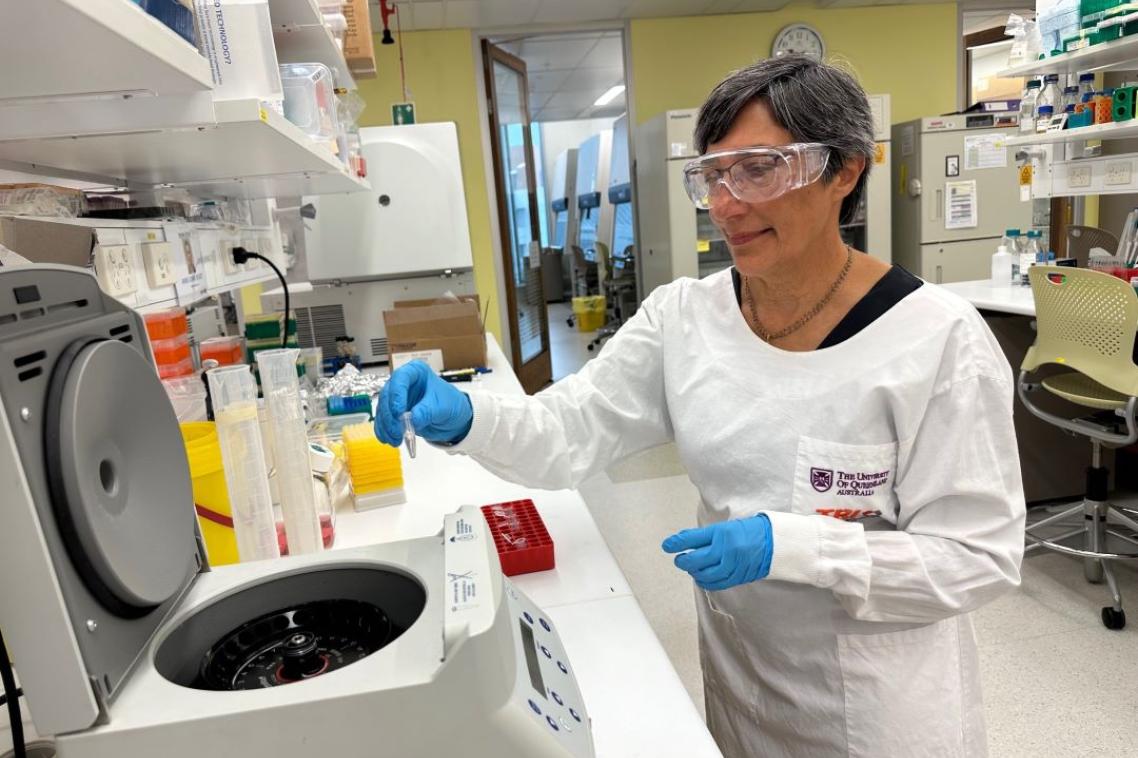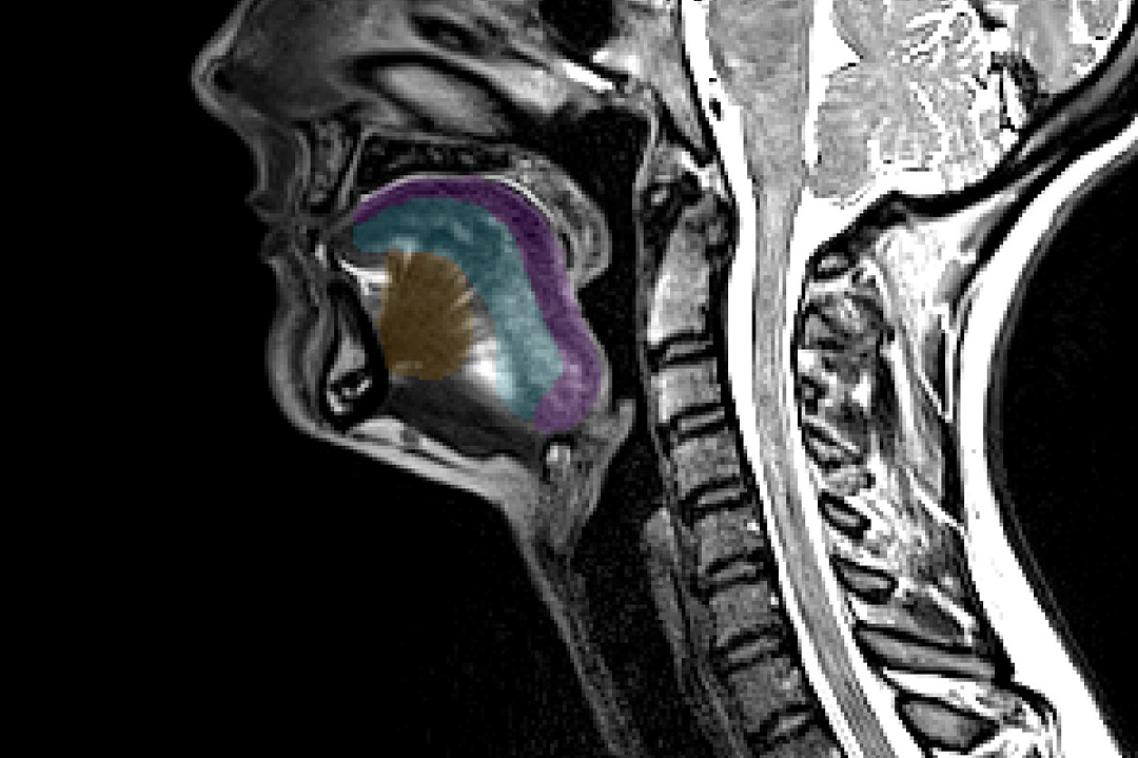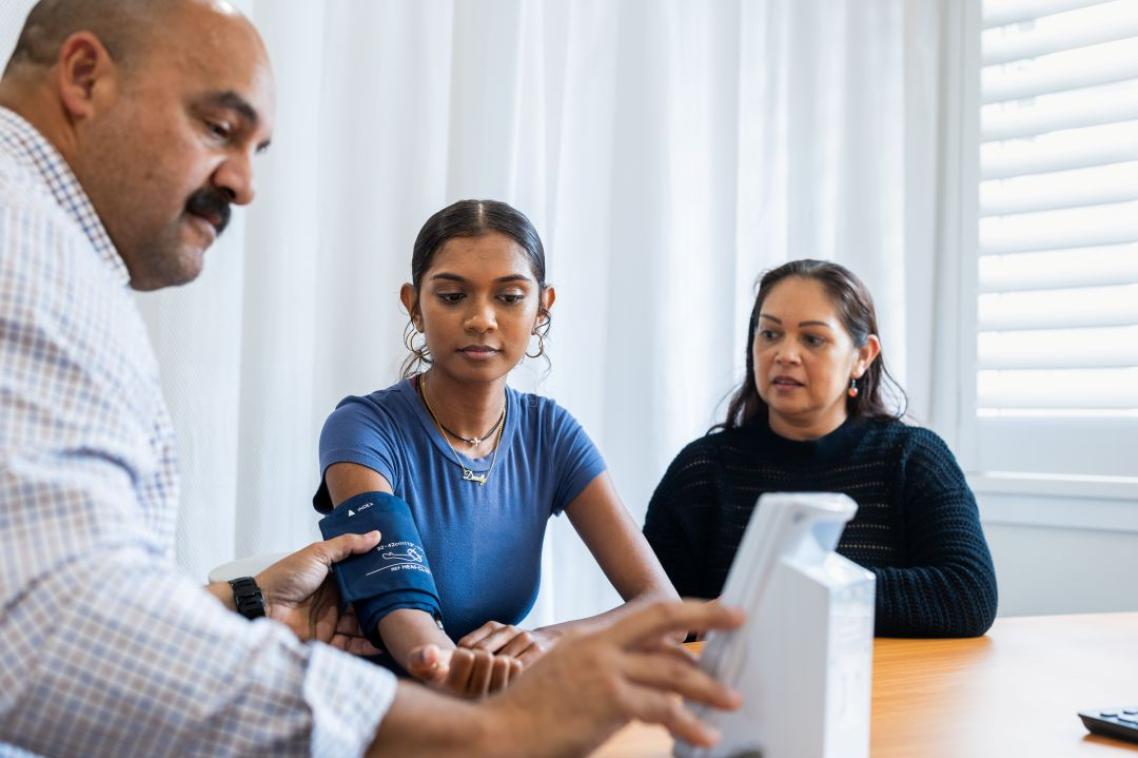A drug free life for Rheumatoid Arthritis patients possible within a decade

Professor Ranjeny Thomas has led the development of ASITI-RA, an immunotherapy drug which could transform patient's lives.
(Photo credit: UQ )
Professor Ranjeny Thomas AM from UQ’s Frazer Institute received the funding as part of the Federal Government’s Frontier Health and Medical Research initiative, which will allow the Reset Rheumatoid Arthritis project to move to the next phase.
“We can now accelerate work to ready us for clinical trials of ASITI-RA, an antigen-specific immunotherapy we developed to reprogram the immune system to sustain long-term remission in RA,” Professor Thomas said.
“Within two years, we expect to be able to start phase 1 clinical trials of the immunotherapy, which aims to reduce the need for lifelong immunosuppression.
“It would transform patient’s lives and reduce the economic burden associated with RA.
“This research has evolved over many years, and we are so excited to receive this funding that will accelerate our progress to the clinic.”
RA is a painful lifelong inflammatory disease affecting 23 million people worldwide, with the incidence disproportionately high in women.
In early-phase human clinical trials conducted by Professor Thomas’ team, participants in two of the dose groups entered disease remission within 8 weeks.
“We learned from this trial that there is a dosing sweet spot, which will be helpful for our next trial,” Professor Thomas said.
“But one of our most exciting findings was the patient’s disease-specific antibodies also changed, which doesn’t occur in response to current therapies.
“Based on our results, this funding provides a world-first opportunity to leverage these learnings, and to progress our new immunotherapy to trial to interrupt the disease process and achieve safe treatment withdrawal.
“Immunotherapies like this might also be used to prevent the onset of RA in people at high risk, and in people recently diagnosed with other autoimmune disorders like Type 1 diabetes.
“Our team includes the best people from right across the globe, with support from UniQuest for commercialisation, and patient and health professional-focussed partnerships.”
Partners on the project include The University of Sydney, Monash University, King’s College London, Macquarie University, Newcastle University, Leiden University Medical Center, Flinders University, Metro South Hospital and Health Service, Arthritis Australia, Arthritis Queensland, The CLEARbridge Foundation, Southern Adelaide Local Health Network, Translational Research Institute and the Australian Rheumatology Association.
People interested in taking part in the study can email fi.thomasresearch@uq.edu.au for further information.
Related articles

Scanning the tongue to detect and track Motor Neurone Disease

